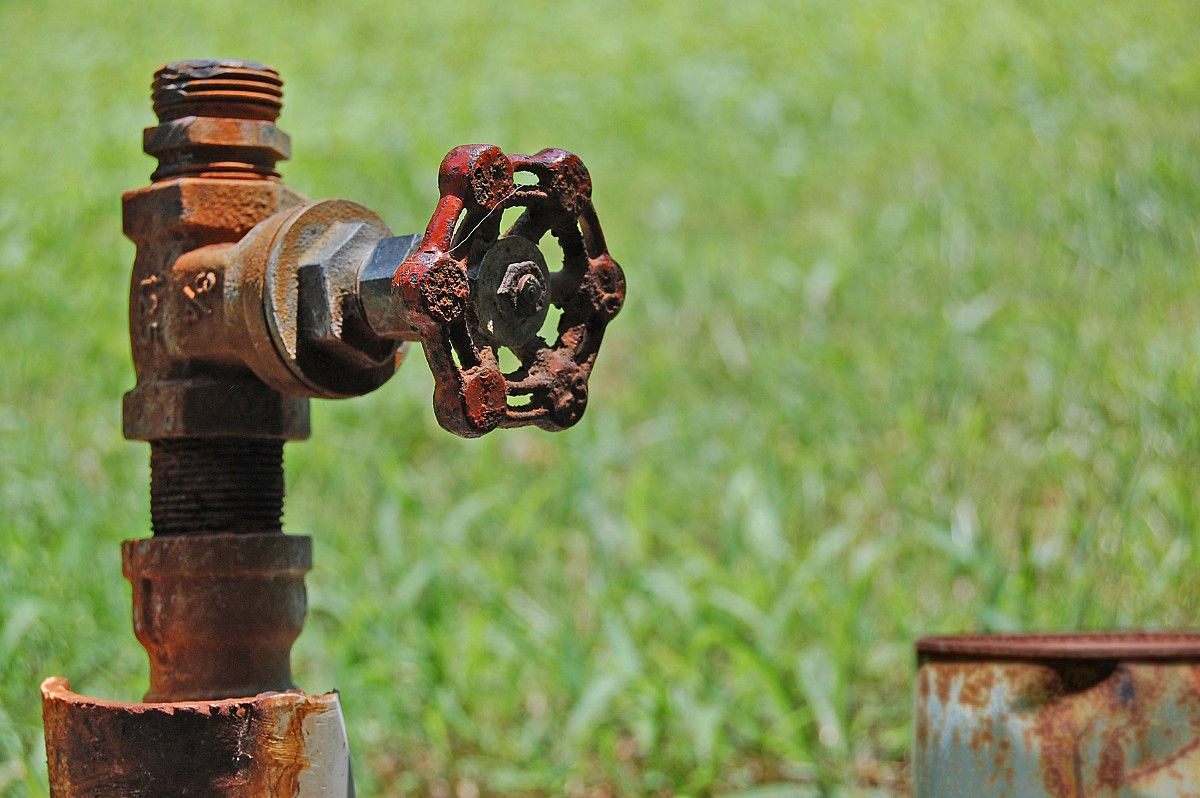Solutions for Rusty Water
 If your water tastes like it’s been sitting in an old frying pan and your white laundry has acquired an orange-ish “patina,” you have rusty water, otherwise known as water with a lot of iron in it. That may not be news to you. You might also know that rusty water isn’t a health hazard and that, even though iron is used for things like wrecking balls and bridge girders, traces of it in your water cannot be blamed for any recent weight gain or for setting off the body scanner at the airport. But the fact is, water that tastes bad, ruins clothing and stains plumbing fixtures is hard to live with. And you have a few different options for getting rid of it.
If your water tastes like it’s been sitting in an old frying pan and your white laundry has acquired an orange-ish “patina,” you have rusty water, otherwise known as water with a lot of iron in it. That may not be news to you. You might also know that rusty water isn’t a health hazard and that, even though iron is used for things like wrecking balls and bridge girders, traces of it in your water cannot be blamed for any recent weight gain or for setting off the body scanner at the airport. But the fact is, water that tastes bad, ruins clothing and stains plumbing fixtures is hard to live with. And you have a few different options for getting rid of it.
Causes of Rusty Water
Rusty water most commonly comes from well sources with high iron content and from municipal water systems with old, metal water mains. Less common causes include rusty metal well casings (these are PVC nowadays), corroded water heaters and old metal water supply pipes in the home, which tend to rust from the inside out.
The First Steps
To avoid wasting money on ineffective solutions, first pinpoint the cause of your home’s rusty water. For example, if all the water supply piping in your house is copper (which doesn’t rust) and your water heater isn’t too old, you know the rust is getting into the water before it reaches your home. Another important first step is to test your tap water so you know exactly what’s in there. Chances are, you’re going to need a special filter to get rid of the excess iron—and a test will tell exactly what kind of filter to get. Due to potential conflict of interest, be sure to have your water checked by an independent testing lab.
Filtering Iron
If your well water or municipal water supply simply has too much iron in it, the best solution usually is filtration. The most effective filters are specifically designed to remove iron and other contaminants that often accompany it (and may cause their own stains), such as manganese. Standard water softening devices may be capable of removing some iron, perhaps enough to prevent staining, but quickly become fouled with excess iron and must be treated with an additive. A better solution: Install a special filter that removes iron before it reaches the water softener, or replace a standard softener with one that filters iron as well. If you prefer not to use a water softener, there are filters that can be installed onto your home’s main supply line (for “whole house” filtration) or onto supply lines for individual fixtures.
Dealing with Rust Stains
Commercial products like Super Iron Out can help remove or reduce rust stains on everything from laundry to toilets to dishware. For clothing, try this home remedy (on colored fabric, be sure to test for colorfastness in an inconspicuous area first):
- sprinkle salt over the stain
- add lemon juice
- let dry in the sun
For stubborn stains on toilets and other porcelain fixtures, start with something non-toxic, like abrasive pads or pumice stones designed for rust stain removal. If that doesn’t work, you might have to use a cleanser with oxalic acid or even hydrochloric acid—both of which are not exactly environmentally friendly and should never be used in homes with septic systems. Don’t use chlorine bleach on any rust stain—it doesn’t work, and it actually makes the stains more permanent in fabric.
Consult a licensed plumber for solutions to rusty water and other plumbing problems.
Phil Schmidt is a Networx writer.
Updated December 24, 2017.
Looking for a Pro? Call us (866) 441-6648

Plumbing Average Costs
Plumbers Experiences

Gas Line Replacement By A Plumber Who Takes Pride In His Work

My Remodeled Bathroom Is Modern, Clean And Beautiful



